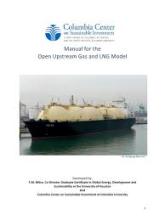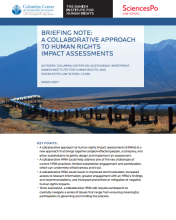Land Library
Welcome to the Land Portal Library. Explore our vast collection of open-access resources (over 74,000) including reports, journal articles, research papers, peer-reviewed publications, legal documents, videos and much more.
/ library resources
Showing items 10 through 18 of 24.How They Tricked Us: Living with the Gibe III Dam and Sugarcane Plantations in Southwest Ethiopia, reveals the dire situation faced by the Indigenous in Ethiopia's Lower Omo Valley and calls for urgent action by the government.
This document provides practical guidance to address the taxation of Indirect Transfers of assets of extractive industries. It focuses on issues that developing country governments may wish to consider if they adopt a policy to tax such transfers.
This manual has been developed for training purposes. It models the gas value chain from the upstream project to the use of gas under the form of LPG, LNG or as feedstock for local industrial or power generation uses.
This paper provides guidance on how to conduct collaborative and participatory risk assessments, paying attention to the human rights of project-affected people.
This briefing note, co-authored with the Danish Institute for Human Rights and the Sciences Po Law School Clinic, outlines a new approach to conducting human rights impact assessments (HRIAs) of
This paper provides guidance on how to integrate consultation and FPIC principles into investor-state contract negotiations to actively involve project-affected communities and better safeguard their land rights and human rights.
This guide aims to assist non-lawyers to better understand investment contracts that concern forestry projects. These "forestry contracts" can be complex, and some provisions may be difficult to understand.
As months of protest and civil unrest hurl Ethiopia into a severe political crisis, a new report from the Oakland Institute debunks the myth that the country is the new “African Lion.” Miracle or Mirage?
On September 15, 2015, the World Bank announced US$600 million of financing for a new initiative in Ethiopia, Enhancing Shared Prosperity through Equitable Services (ESPES).









